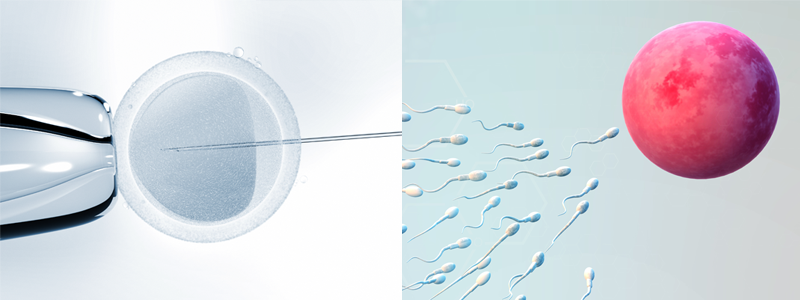Smoking & male infertility
Infertility is just as devastating for men as it is for women when it occurs.
Yet, despite contributing to 50% of infertility problems (and being the sole cause in around 30% of cases) male infertility is often overlooked or overshadowed by conversations surrounding female infertility. Understanding the factors affecting fertility means that all of us - both men and women - will be in a position to make informed choices about how to protect it: for example, there are some effective ways for men to naturally increase their sperm count.
Male infertility is becoming increasingly prevalent, with evidence showing that sperm counts have dropped in the last 40 years. Although it’s a sensitive issue that some men may feel embarrassed about, we need to eliminate the stigma through raising awareness about male infertility and identifying factors which impact it. For instance, smoking is a common lifestyle choice that can have a big impact on fertility.
Can smoking cause male infertility?
Smoking can affect male fertility by damaging the DNA in sperm, meaning they can often grow to have morphological defects which affect their quality (Bundhun, Pravesh Kumar et al. BMC Public Health). Furthermore, smoking can impact male infertility by reducing semen volume, sperm concentration and motility, and the more you smoke, the greater the reduction (Sharma, Reecha et al., European Urology).
However, it is important to note that there are many factors that can contribute to male infertility, and it’s nearly impossible make one lifestyle factor the sole cause. See other ways a man can increase his sperm count naturally here, or contact your GP or you can attend one of our free open events to find out more.
Other factors impacting male infertility:
Age
A common misconception surrounding fertility and ability to conceive is, as detailed by CREATE Medical Director Dr Geeta Nargund in The Guardian, that only women have a biological clock. The truth of the matter is that, from the age 40 onwards, the quantity and quality of a man’s sperm can decline.
Excessive alcohol intake
A study by BMJ Open found that consuming just five units of alcohol per week had an effect on the quality of sperm and, the more alcohol drunk, the weaker the sperm. Use of recreational drugs also has a detrimental effect.
Physical wellbeing
As noted by the NHS, poor diet, stress, lack of physical activity and being overweight can affect quality and quantity of sperm.
Mother’s lifestyle
If your mother smoked during her pregnancy, it’s possible this affected your foetal testicular development. Read the NHS’ examination of the statement “A man's fertility depends more on his mother's lifestyle than his own,” here.
Medical issues
Of course, there are also medical problems leading to male infertility that are, unfortunately, out of our control, related to semen production, testicular abnormalities, hormonal imbalance and ejaculation issues. For a more comprehensive look at these problems, see our Infertility in Men blog.
How long after quitting smoking will sperm improve?
The good news is that, while these negative effects on your lifestyle do affect the quantity and quality of your sperm, there is an opportunity, as there is an opportunity for you to make positive change - but these changes should be made in advance, and maintenance of a healthy lifestyle is necessary. This is because it can take the body three months to create new sperm, so if you’re trying to conceive you should be quitting smoking well in advance in order to increase your chances.
Treatment for male infertility
The best form of treatment is education, as Dr Geeta argues in her Huffington Post article, Why Boys Should Also Receive Fertility Education in Schools. This will, she hopes, provide both girls and boys with enough information to make responsible life choices that will lead to better chances of having a healthy family when they’re ready.
The good news is that IVF is also a viable treatment for male infertility. The Intra-Cytoplasmic Sperm Injection (ICSI) technique is a viable option for couples suffering from male factor infertility.
If you’re concerned about the effect of smoking on your fertility and wish to discuss your options, or you want to generally enquire about fertility treatment with CREATE, please get in contact with our team.
If you’d like to learn more about CREATE Fertility and the treatments we offer please call us.
Weekdays 8am - 6pm | Saturday 10am - 4pm






